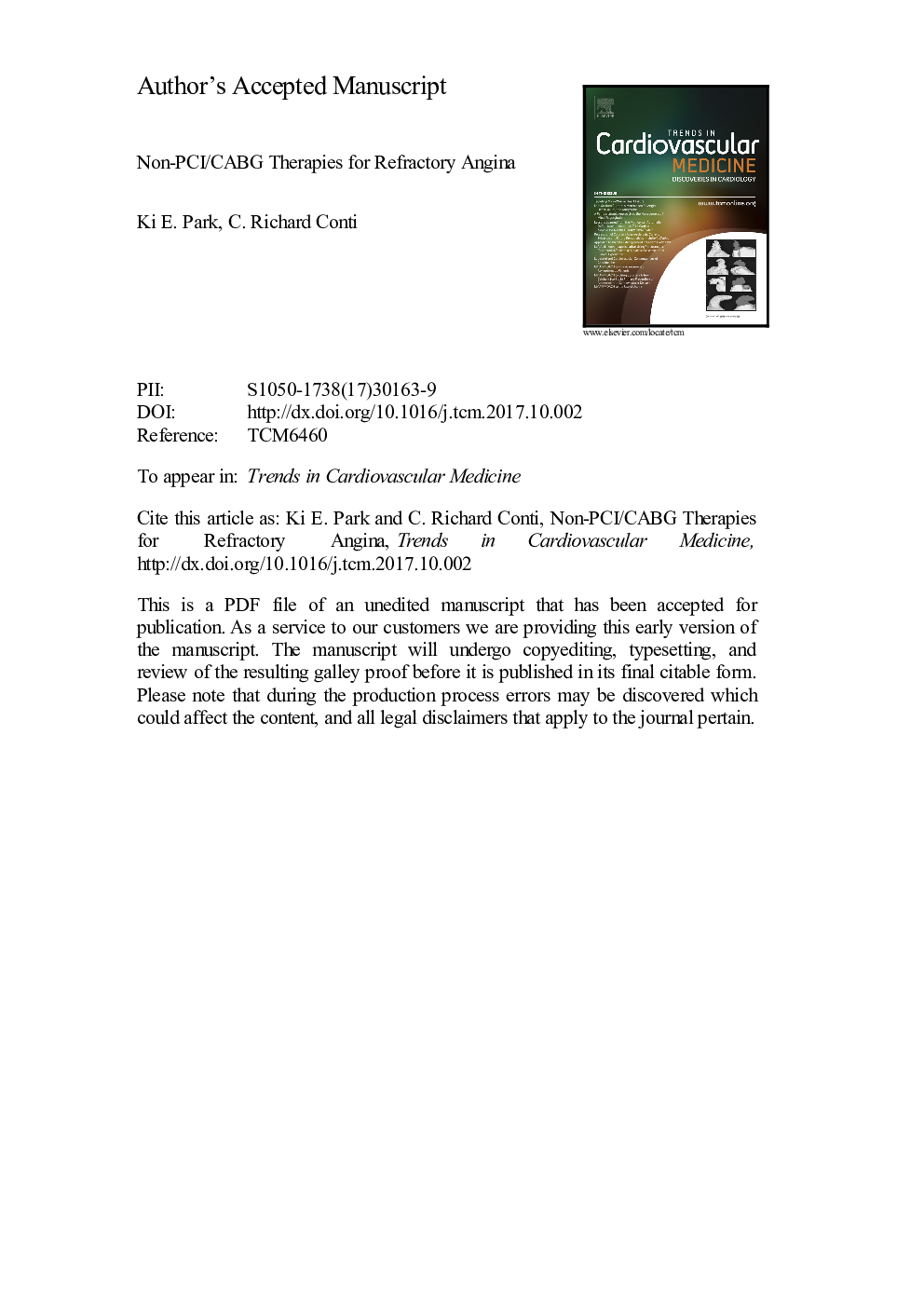| Article ID | Journal | Published Year | Pages | File Type |
|---|---|---|---|---|
| 8679812 | Trends in Cardiovascular Medicine | 2018 | 19 Pages |
Abstract
Angina persists for many patients despite modern medical therapy and/or revascularization, and this is referred to as refractory angina. All patients with refractory angina must be treated with aggressive risk factor modification plus optimized medical management. β-Blockers and nitrates are usually first-line agents; however most patients require multiple medications for refractory symptom control. Novel agents, such as ranolazine and ivabradine, as well as non-pharmacologic therapies, such as enhanced external counterpulsation and cardiac rehabilitation, may provide relief or reduction of angina. Other standard treatments such as antiplatelet therapy, lipid reduction therapy, blood pressure control, diabetes control, smoking cessation, and wei1ght control should be part of the management of refractory angina as well.
Keywords
Related Topics
Health Sciences
Medicine and Dentistry
Cardiology and Cardiovascular Medicine
Authors
Ki E. MD, MS, C. Richard MD,
